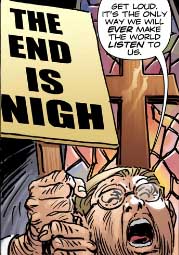[ by Charles Cameron — so now at least the Chairman of the Joint Chiefs hears it and speaks it ]
.
**
I’m reminded of “the curious incident of the dog in the night-time” to which Sherlock Holmes refers in Silver Blazea, a story in Conan Doyle‘s collection, The Memoirs of Sherlock Holmes. Holmes’ Scotland Yard interlocutor, Gregory, replies, “The dog did nothing in the night-time” — to which Holmes responds, “That was the curious incident.”
In Three Ways the Islamic State Is Turning Things Upside Down, Peter Feaver writes at FP today:
Gen. Martin Dempsey, the chairman of the Joint Chiefs of Staff, made clear that the more demanding task of “defeat” would require attacking IS’s Syria sanctuaries. That objective would certainly be proportional to the threat the administration says IS poses, but that is a far more demanding military task than Obama has been willing to embrace until now and so far there is little indication the president himself is willing right now to commit the country to that task. But if President Obama is indeed committed to more modest steps, why does the administration keep describing the threat in apocalyptic terms, and why does it keep describing more ambitious objectives?
And that’s what reminds me of Holmes’ silent dog — does “the administration keep describing the threat in apocalyptic terms”? Really?
**
I ask, because Tim Furnish has the feeling that what he’s been saying and writing, nay preaching for some years now, both on his own MahdiWatch blog and here on Zenpundit, may finally have been heard by senior levels in the administration. And his proof text comes from today’s Guardian, in which Martin Dempsey, Chairman of the Joint Chiefs, is quoted as saying of ISIS:
This is an organisation that has an apocalyptic, end-of-days strategic vision which will eventually have to be defeated.
That’s in a piece titled ‘Apocalyptic’ Isis beyond anything we’ve seen, say US defence chiefs.
**
DNI James Clapper has called the Syrian situation an “apocalyptic disaster“, but that’s using “apocalyptic” as a synonym for “nightmareish” in much the same way that “of biblical proportions” is often used to rean “enormous” — it’s a loosening of the word.
The White House site also hosts a piece by Torya Blanchard, a Champion of Change, “Winning the Future” award, in which she describes the recession in Michigan, and Detroit in particular:
We almost lost our auto industry, our housing market was decimated, a scary apocalyptic media coverage..
That too is a non-eschatological use of the term.
The NSC’s 2009 National Strategy for Countering Biological Threats uses the word in its specifically theological meaning when it refers to “the apocalyptic Aum Shinrikyo cult” which “sprayed a liquid containing Bacillus anthracis (anthrax) spores from the roof of their headquarters near Tokyo, Japan”..
Aum Shinriko was indeed an apocalyptic movement, seeking the end of this world and a rebirth of its own civilization somewhere, sometime in space — under the inspiration of Isaac Asimov‘s Foundation series.
And now comes Gen. Dempsey with the explicit phrase “apocalyptic, end-of-days”:
This is an organisation that has an apocalyptic, end-of-days strategic vision
**
Get loud. It’s the only way we will ever make the world listen to us. — Watchmen
Tim Furnish has been warning us about the perils of Mahdist movements at least since 2008 — when I apparently pointed Zen to a post on his own MahdiWatch blog. I’ve been concerned about contemporary Islamic apocalyptic since 1998, and writing about it here on Zenpundit since 2009. David Cook published his book, Contemporary Muslim Apocalyptic Literature in 2005, as did Furnish his Holiest Wars: Islamic Mahdis, Their Jihads, and Osama bin Laden, and J-P Filiu published his Apocalypse in Islam, in French in 2008 and English, 2011.
**
So.
Does it matter that the Islamic State has an “apocalyptic end-of-days” strategic vision?



